Raphael Linsi
Der Geruch des noch warmen Motors eines am Fusse des Berges geparkten Fahrzeugs
January 30 - February 20, 2016
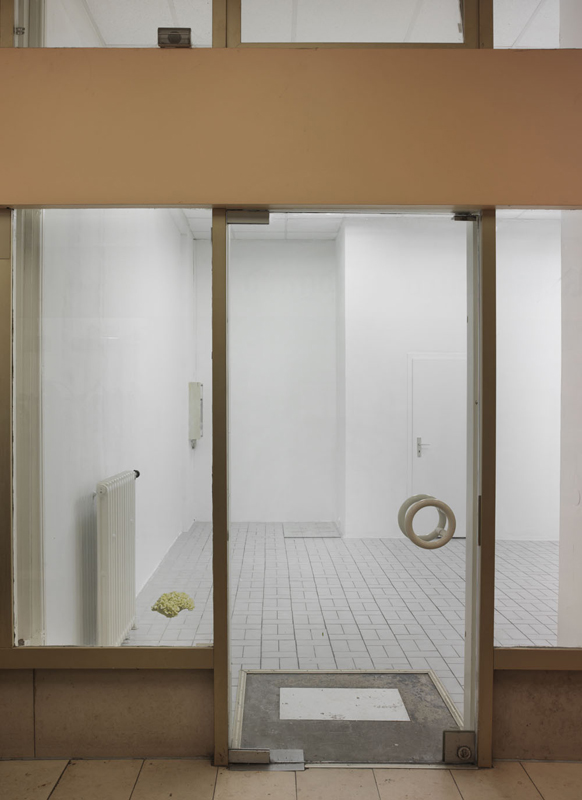
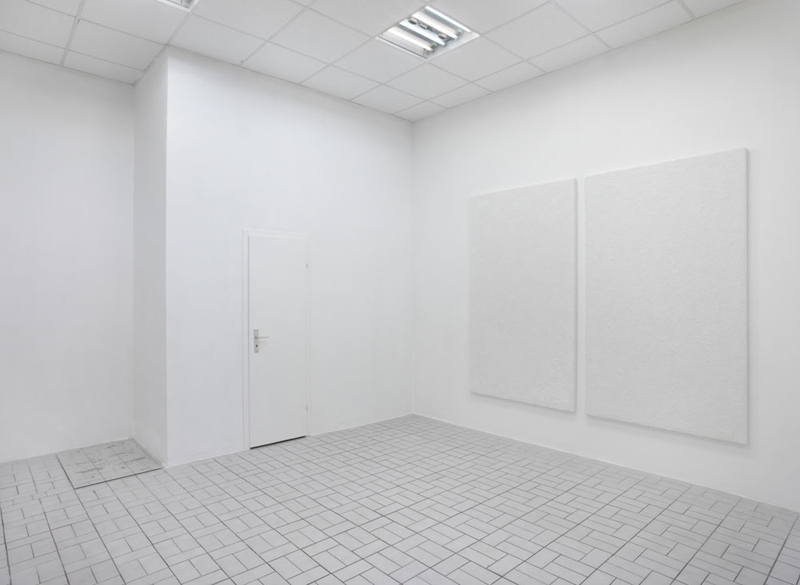
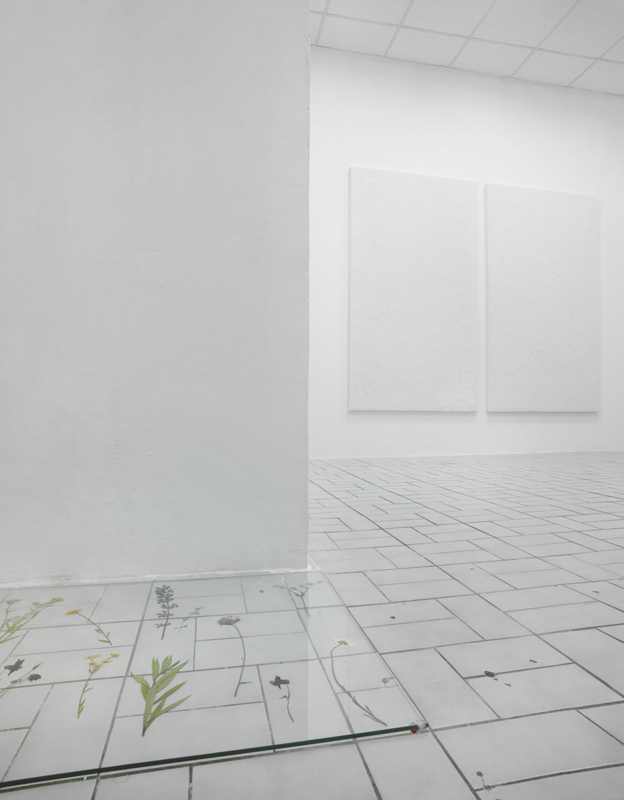
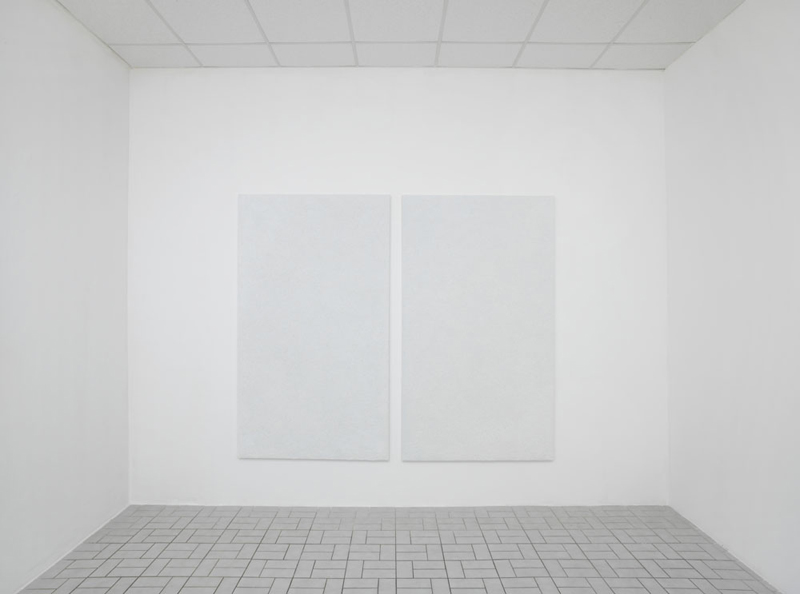
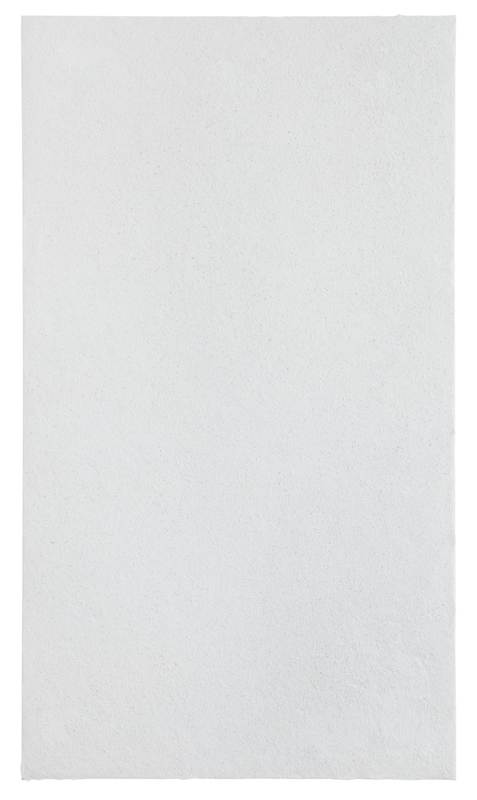
Untitled, 2016
Washing powder and spackle on canvas
210 x 120 cm
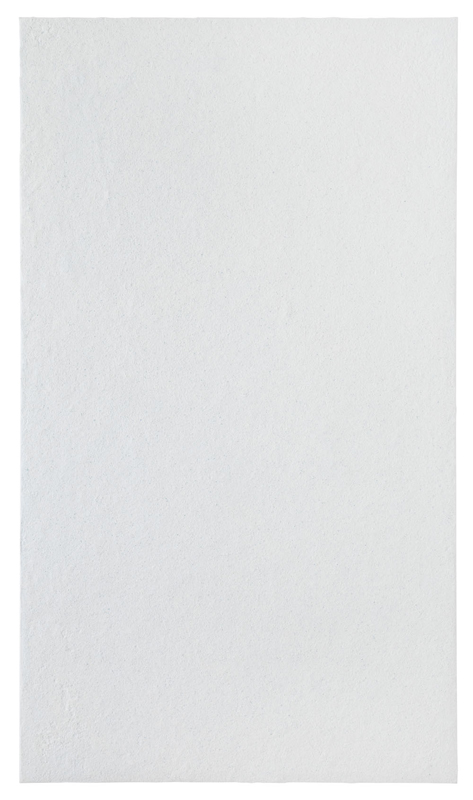
Untitled, 2016
Washing powder and spackle on canvas
210 x 120 cm
Detergents
These products have been in the last few years the object of such massive advertising that they now belong to a region of daily life which the various types of psychoanalysis would do well to pay some attention to if they wish to keep up to date. One could then usefully contrast the psychoanalysis of purifying fluids (chlorinated, for example) with that of detergents (Ariel Actilift). The relations between the evil and the cure, between dirt and a given product, are very different in each case.
Chlorinated fluids, for instance, have always been experienced as a sort of liquid fire, the action of which must be carefully estimated, otherwise the object itself would be affected, ‚burnt‘. The implicit legend of this type of product rests on the idea of a violent, abrasive modification of matter: the connotations are of a chemical or mutilating type: the product ‚kills‘ the dirt. Detergents, on the contrary, are separating agents: their ideal role is to liberate the object from its circumstantial imperfection: dirt is ‚forced out‘ and no longer killed; in the Ariel Actilift imagery, dirt is a diminutive enemy, stunted and black, which takes to its heels from the fine immaculate canvas at the sole threat of the judgment of Ariel Actilift. Products based on chlorine and ammonia are without doubt the representatives of a kind of absolute fire, a saviour but a blind one. Detergents, on the contrary, are selective, they push, they drive dirt through the texture of the object, their function is keeping public order not making war.
But even in the category of detergents, one must in addition oppose against advertisements based on psychology those based on psychoanalysis. ‚Persil Whiteness‘ for instance, bases its prestige on the evidence of a result; it calls into play vanity, a social concern with appearances, by offering for comparison two objects, one of which is whiter than the other. Advertisements for Ariel Actilift also indicate the effect of the product (and in superlative fashion, incidentally), but they also chiefly reveal its mode of action; in doing so, they involve the consumer in a kind of direct experience of the substance, make him the accomplice of a liberation rather than the mere beneficiary of a result; matter here is endowed with value-bearing states. Ariel Actilift uses two of these, which are rather novel in the category of detergents: the deep and the foamy. To say that Ariel Actilift cleans in depth is to assume that canvas is deep, which no one had previously thought, and this unquestionably results in exalting it, by establishing it as an object favourable to those obscure tendencies to enfold and caress which are found in every human body. As for foam, it is well known that it signifies luxury. To begin with, it appears to lack any usefulness; then, its abundant, easy, almost infinite proliferation allows one to suppose there is in the substance from which it issues a vigorous germ, a healthy and powerful essence, a great wealth of active elements in a small original volume. Finally, it gratifies in the consumer a tendency to imagine matter as something airy, with which contact is effected in a mode both light and vertical, which is sought after like that of happiness either in the gustatory category (foie gras, entremets, wines), in that of clothing (muslin, tulle), or that of soaps (filmstar in her bath). Foam can even be the sign of a certain spirituality, inasmuch as the spirit has the reputation of being able to make something out of nothing, a large surface of effects out of a small volume of causes (creams have a very different ‚psychoanalytical‘ meaning, of a soothing kind: they suppress wrinkles, pain, smarting, etc.). What matters is the art of having disguised the abrasive function of the detergent under the delicious image of a substance at once deep and airy which can govern the molecular order of the material without damaging it.